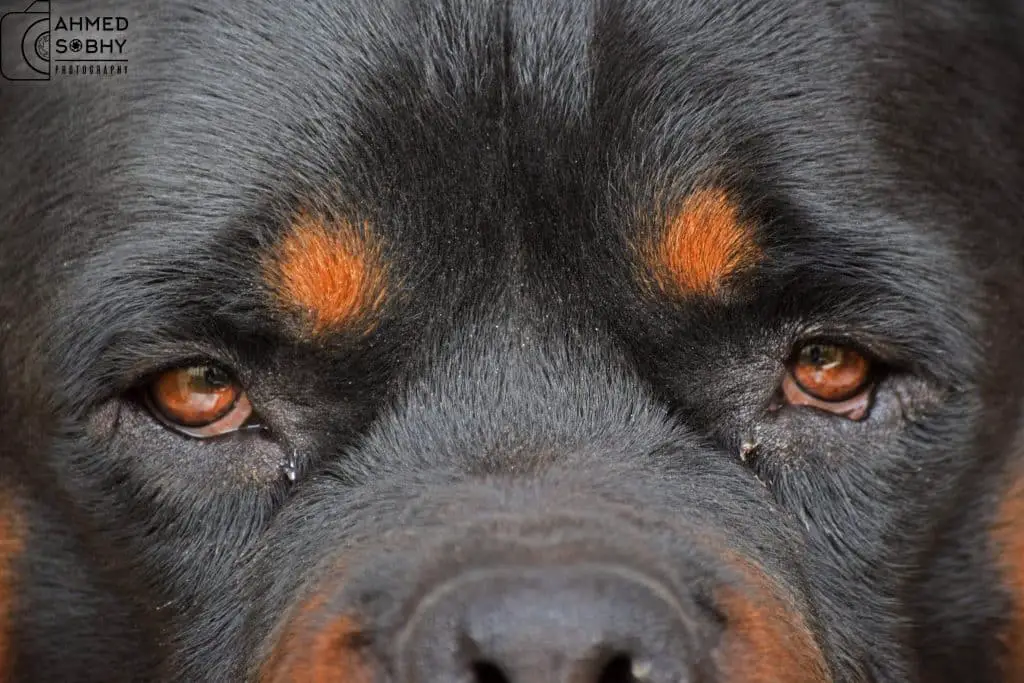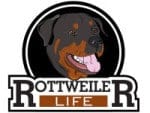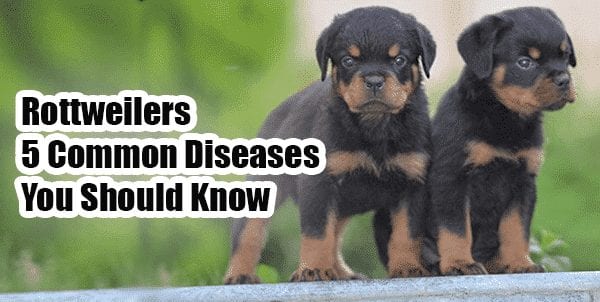Rottweiler Diseases – There is a misconception that sick dogs should be treated only by a veterinarian. In fact, the vet only examines and prescribes treatment, and the one, who is taking care about the dog, is you.
Each owner of a Rottweiler must be able to provide first aid to the pet and to prevent his death or complications of the disease. You have to know what you can do in case the vet is not around and your rottie needs emergent help.
It is also important to know the symptoms of major diseases and methods of treatment, but don’t try to self-diagnose your rottweiler. Suspicions may be incorrect due to atypical occurrence of a disease, and your own treatment will only bring harm. Noticing the dogs signs of diseases above, you must first contact your veterinarian.

Skin Rottweiler diseases
Diseases of the skin in dogs lead to irritation, nervous behavior and reduce total body resistance to infectious diseases. That is why it is essential to monitor the state of your rottie epidermis. ! Systematic care about Rottweiler’s skin (washing, brushing and combing) prevents the development of skin diseases and improves the functioning of the skin cover.
Eczema Rottweiler diseases
The disease starts with the dog’s attempts to comb the skin. If you remove the hair coat from these areas, you will see reddened, swollen non-pigmented areas of the epidermis. Scratching these areas calms dogs, but after few hours or days your rottweiler will start having red nodules, what leads to hair loss. Of course, in such case rottweilers need help of the vet, but regular check-ups from your side will allow to notice eczema in the early stages.
Dermatitis Rottweiler diseases
Dermatitis is an inflammation of all the layers of the skin, but without rashes (like eczema). In acute course of the disease dogs have redness, pain, swelling of the skin and a slight increase in temperature. If your rottweiler has increased temperature and depression, it may indicate the development of purulent dermatitis. Chronic dermatitis may be determined by sealing thickened skin.Chronic dermatitis is treated by paraffin baths, massages and ultrasound therapy. Purulent dermatitis is treated by bandages and compresses.
Seborrhea Rottweiler diseases
This disease is caused by hyperactivity of the sebaceous glands and excessive accumulation of fat in the skin. Dogs start having formation of hilly and loose accumulations of fat in the skin. Initially, seborrhea captures small areas of skin cover, but if you do not start early treatment of your Rottweiler’s skin, damage will spread further and may go to eczema and dermatitis.
Sepsis Rottweiler diseases
If your rottweiler has problems with immune system, functioning of vital organs and hypersensitivity to different infections, he might have a sepsis. Treatment of sepsis is comprehensive, early and intense.
! This disease almost can’t be cured and in most cases leads to the death of dogs.
Don’t let your rottweiler get any of these diseases, take care of his skin and do periodical check ups not only when you go to the vet. It’s your rottie and your best friend, so you are able to notice if something is wrong with your pet.


